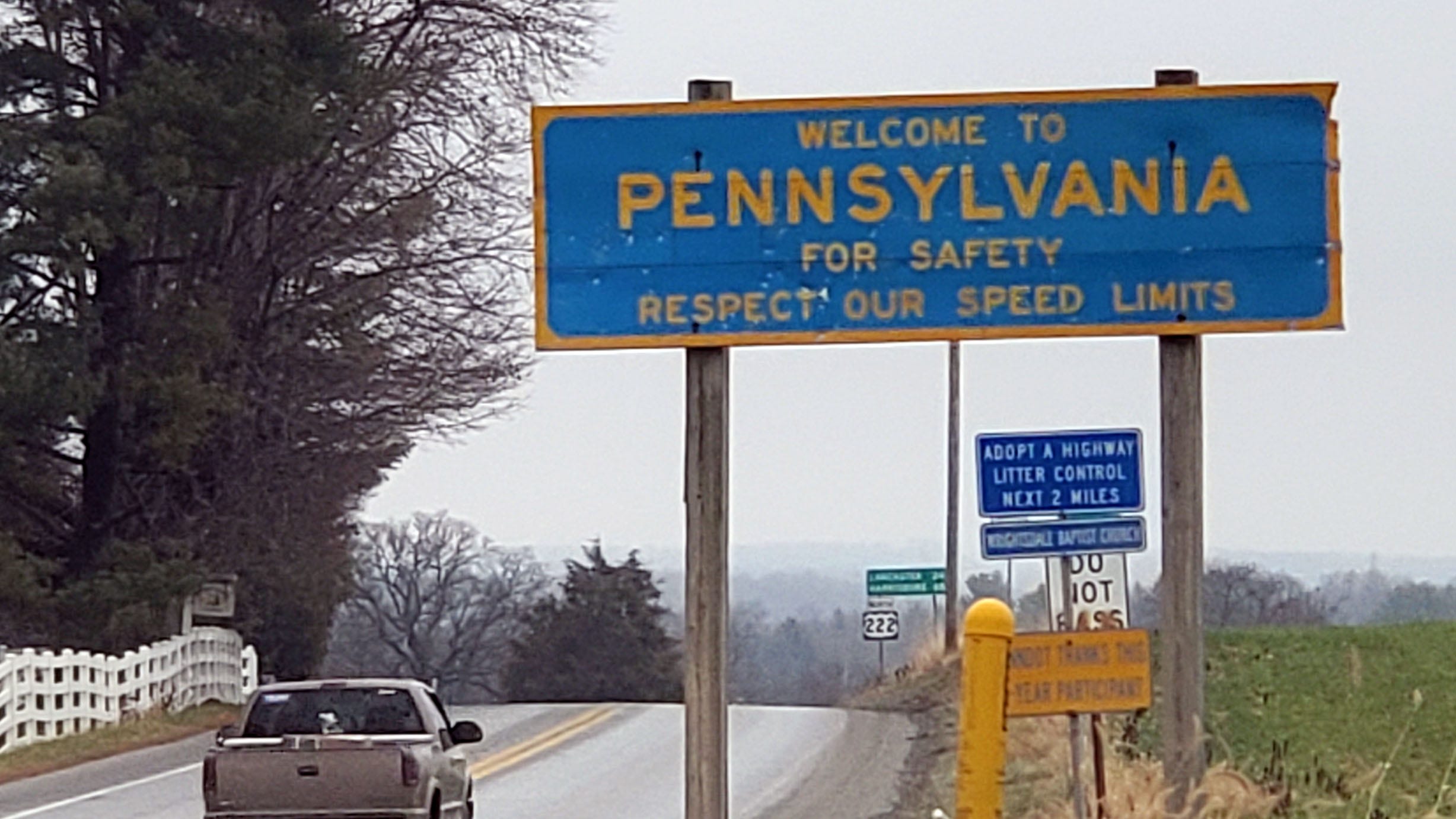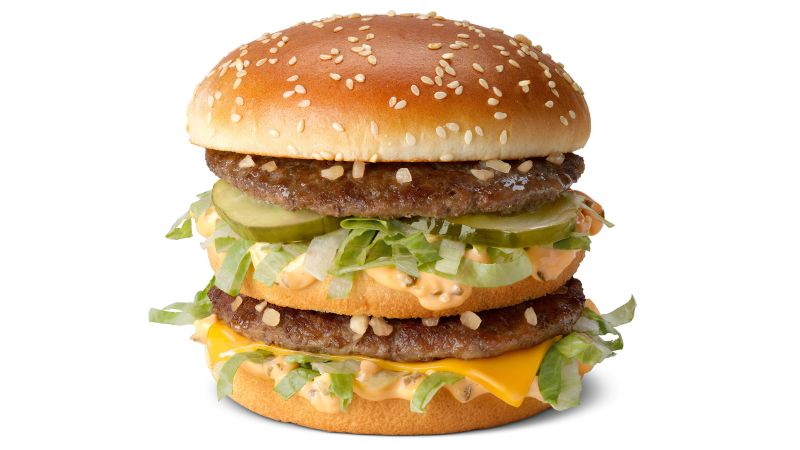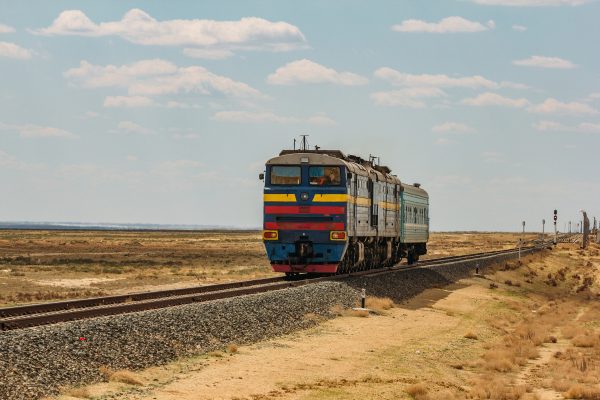The first of two trials connected to the headline-grabbing multimillion-dollar gold heist at Toronto’s Pearson International Airport last year is scheduled to begin in September in a Pennsylvania court, but two of the accused are still in Canada.
Archit Grover and Prasath Paramalingam, who have been charged in the 2023 theft of gold from an Air Canada cargo facility, are also accused of being part of a firearms smuggling ring with another gold heist suspect.
What are the U.S. charges?
In September 2023, Pennsylvania State Police pulled over Durante King-McLean in Franklin County after they say he committed several traffic offences. Grand jury documents list 65 firearms that were allegedly found in his vehicle. Police say those firearms were destined for Canada.
King-McLean is also the man Peel Regional Police allege was behind the wheel of a white cube van that made off with more than $20 million in gold and foreign currency from the Air Canada cargo facility months earlier, in April.
The Canadian, who was in the United States illegally, has been in custody there since his arrest. He has pleaded not guilty to six very serious firearms-related charges.

A Florida woman will also be tried with King-McLean as an accessory after the fact. She is not facing any charges in Canada connected to the gold heist.
Paramalingam is accused of helping King-McLean enter the U.S., traffic the firearms, secure money for the scheme and arrange an Airbnb in Florida.
Grover is alleged to have been an accessory to the crime.
How is this case connected to the gold heist?
When police in Peel Region, just west of Toronto, announced the arrests in April at a joint news conference with U.S. authorities, they alleged that some of the profits from the gold heist were used by some of the accused to buy firearms in the U.S. with the intent of smuggling them across the border and selling them in Canada.
According to the U.S. grand jury documents, Paramalingam exchanged a large sum of Canadian currency into U.S. dollars one month after the heist and personally delivered it to King-McLean south of the border.
In an initial news release on the arrests, the U.S. Department of Justice alleges that Paramalingam and others had been involved in the plan to smuggle weapons across the border since April 2023.

Could the U.S. extradite the Canadian men?
The U.S. Justice Department is tight-lipped about its plans for the two accused men in Canada and whether it intends to make an extradition request, but if it wants a speedy trial, it is unlikely to do so, a legal expert said.
“Extradition can be time consuming,” said Robert Currie, a law professor at Dalhousie University in Halifax who specializes in extradition matters, adding that on average, the extradition process can take anywhere from 18 months to three years.
“Particularly if individuals contest being extradited. So I imagine what the American prosecutors are doing is moving forward with the prosecutions that they have in hand and will wait for the extradition of the other two individuals,” Currie said.

Toronto criminal defence lawyer Leo Adler, who has represented clients in extradition cases over his decades in practice, suggested another, if unlikely, way this could play out.
“The Canadian government, which is not unusual, could simply drop their charges in order to open the way for extradition,” he said. “It seems to me as if the Americans are proceeding, which they’re certainly entitled to, with whoever they have in the United States.”
U.S. authorities could then wait and see what happens with the Canadian trial before making any extradition requests for the two other Canadians accused in the case, Adler said.
How does extradition work?
The Canadian extradition process has three phases. First, the federal Justice Department must approve an application for an extradition hearing. This decision is usually rendered within 30 days, depending on which country is involved and whether there is a pre-existing treaty.
The process then moves to a judicial phase before a superior court judge, who determines whether the crimes alleged by the other country would meet the bar for criminal prosecution in Canada. If the judge agrees that the charges would be a criminal offence in Canada, the matter is referred to the federal justice minister. If the case doesn’t meet that bar, the person is released.
If the minister agrees to extradite, the person must be surrendered to the other country within 45 days. The person can then appeal the decision, ask for a judicial review and even take the matter all the way to the Supreme Court of Canada.
Generally, public officials do not comment on these matters or even confirm they are underway until there has been a decision.
Police have arrested multiple people and laid 19 charges in relation to a multimillion-dollar gold heist at Pearson airport last year. Peel police Det.-Sgt. Mike Mavity said the suspect gained access to an Air Canada storage facility using an airway bill — a document typically issued by a carrier with details on the shipment — for a shipment of seafood picked up a day prior.
What will happen at U.S. trial without 2 Canadians?
The first thing to consider is whether King-McLean makes a plea deal before the trial begins in September.
“Deal-making is how many American cases are dealt with,” Adler said.
He said that King-McLean, who is facing serious felony charges with long prison time, would be heavily incentivized to strike a deal to provide evidence against the other accused individuals or testify against them.
But if the trial proceeds, the evidence presented in the case could be used against Archit Grover and Prasath Paramalingam in any eventual U.S. trial.
“The Canadians, if they’re convicted here, could then be sent to the United States — assuming that the extradition is successful — and be sentenced again there for the guns. So it’s sort of a double-barrelled prosecution,” Adler said.
The tricky part for prosecutors on both sides of the border is to ensure the two alleged crimes are tried separately from one another.
“If they’re convicted of something on one side of the border, they can’t then be extradited to the other country and tried for it again there or something really, really closely related,” Dalhousie University’s Currie said. “There is case law suggesting that the Crown is not always careful enough about that.”
However, given that the firearms charges in the U.S. and the gold heist charges in Canada were announced within 24 hours of one another, Currie said he believes there has been a cross-border effort to organize and co-ordinate the prosecutions.
“I think we can anticipate that most of the ducks are in a row, and the prosecutors and police who’ve been working on the case have a plan about how it’s going to move forward,” he said.
How could the U.S. trial impact the Canadian trial?
Evidence presented at the U.S. trial or coming from any plea deal could end up being used in the Canadian case. And, it turns out, some of the evidence from Canadian authorities could be presented at the Pennsylvania trial.
”Any evidence that’s in the hands of the U.S. prosecutors may very well end up in the hands of Canadian prosecutors, because we have a treaty with the U.S. called the Mutual Legal Assistance treaty,” Currie said.
“There’s an awful lot of cross-border sharing,” Adler said.
That includes banking records, and anything found though search warrants can be sent to prosecutors in the U.S., and vice versa, he said.
That evidence could very well affect how some of the accused in the gold heist move forward with their legal strategy.
“Anything that comes out about the gold heist in the American trials will give the accused people in Canada a sense of what evidence is out there against them,” Currie said.
That could make some of those accused in the gold heist on this side of the border more willing to plea bargain, he said.
“There are a lot of moving pieces in a case like this where there’s a cross-border aspect, and you’ve essentially got two groups of people being tried for the same range of crimes, but at different times, ” Currie said.
Police now say much of the gold stolen in the massive 2023 heist at Toronto’s Pearson International Airport is now overseas, ‘in Dubai or India.’ Police also confirm the gold stolen is worth millions more than originally announced.























Discussion about this post